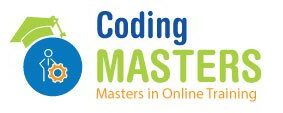Best Online Data Science Training Program
Python has emerged as one of the most popular programming languages for data science, analytics, and machine learning. Its simplicity, versatility, and a rich ecosystem of libraries make it the ideal choice for professionals working in data-driven environments. At Coding Masters, under the guidance of Subba Raju Sir, students can master Python for data science through the Best Online Data Science Training program.
What are Data Environments?
Data environments refer to the frameworks, systems, and tools used to collect, store, process, and analyze data. These environments play a critical role in enabling organizations to manage data effectively and make informed decisions. They include data warehouses, cloud platforms, machine learning ecosystems, and big data frameworks that ensure seamless integration and accessibility of data. A robust data environment supports end-to-end workflows, from data ingestion to the generation of actionable insights, making it indispensable in today’s data-driven world.
Why Python for Data Environments?
Python is the go-to language for data professionals because of its ease of use, readability, and an extensive collection of libraries tailored for data manipulation, analysis, and visualization. Let’s delve into why Python excels in data environments:
1. Simplicity and Flexibility
Python’s straightforward syntax allows developers to write clean and efficient code with minimal effort. Its simplicity makes it accessible to beginners while being powerful enough for experienced professionals. Python’s flexibility enables integration with other programming languages and tools, making it adaptable to various data environments. Whether you’re building a simple script or a complex machine learning model, Python ensures an efficient development process.
2. Rich Ecosystem of Libraries
Python offers a multitude of libraries specifically designed for data science:
- NumPy: For numerical computations.
- Pandas: For data manipulation and analysis.
- Matplotlib & Seaborn: For data visualization.
- Scikit-learn: For machine learning.
- TensorFlow & PyTorch: For deep learning applications.
These libraries simplify complex data processes, allowing developers to focus on deriving insights and creating innovative solutions. They provide tools for everything from data preprocessing to advanced analytics, ensuring Python remains a comprehensive solution for data environments.
3. Community Support
Python boasts a vast and active community, ensuring abundant resources, tutorials, and forums to help learners at every step. This community contributes to regular updates, innovative packages, and robust documentation. For professionals working in data environments, having access to a wealth of community-driven knowledge can significantly expedite problem-solving and development processes. This support network makes Python a reliable choice for tackling challenges in any data scenario.
4. Cross-Platform Compatibility
Python’s ability to run seamlessly across different operating systems makes it an excellent choice for diverse data environments. It ensures smooth integration and functionality, regardless of whether the system runs on Windows, macOS, or Linux. This cross-platform nature simplifies collaboration among teams working in varied technical ecosystems, ensuring that Python projects remain versatile and widely applicable.
Key Concepts in Python for Data Environments
Here’s a breakdown of essential Python concepts tailored for data professionals:
1. Data Types and Structures
Understanding and effectively using Python’s basic and complex data structures are foundational for any data environment. Data types like integers, floats, and strings enable basic operations, while structures like lists, dictionaries, and tuples allow developers to organize and manipulate data efficiently. For example, dictionaries are often used to store metadata, while lists can hold collections of records, making them integral to data workflows.
2. Data Manipulation with Pandas
Pandas provides robust tools for handling large datasets, offering functionalities like merging, grouping, and reshaping data. It simplifies tasks such as cleaning missing values and transforming raw data into a structured format. This makes Pandas indispensable for data environments where accuracy and efficiency are crucial for downstream analytics and modeling tasks.
3. Numerical Computing with NumPy
NumPy enhances performance by enabling fast numerical computations through its efficient array and matrix operations. These capabilities are vital in high-performance data environments where speed and accuracy are essential. Whether you’re performing linear algebra or working on statistical analysis, NumPy’s functionalities ensure robust computational support for data-driven tasks.
4. Data Visualization
Creating visual representations of data is crucial for decision-making and communication. Libraries like Matplotlib and Seaborn empower developers to create meaningful charts, graphs, and plots. These visualizations help convey insights effectively, making raw data comprehensible to stakeholders and aiding in strategic decision-making processes.
5. Statistical Analysis
Applying statistical methods using libraries like SciPy allows professionals to derive patterns, correlations, and trends within datasets. Statistical analysis forms the backbone of predictive analytics, enabling data scientists to make informed forecasts and recommendations. This capability is particularly important in data environments focused on business intelligence and strategy.
6. Machine Learning with Scikit-learn
Scikit-learn offers tools for building and deploying machine learning models, from data preprocessing to hyperparameter tuning. These capabilities are integral to advanced data environments that rely on predictive modeling and automation. The library’s comprehensive suite of algorithms ensures it can handle a wide range of data science applications efficiently.
7. Working with Big Data
Big data environments require tools like PySpark for distributed computing. Python’s ability to interface with big data frameworks ensures scalability and efficiency, enabling organizations to handle massive datasets seamlessly. These integrations are particularly important for industries like finance, healthcare, and retail, where data volume and velocity are constantly increasing.
8. Automation and Scripting
Python enables the automation of repetitive tasks, such as data extraction, transformation, and loading (ETL) processes. This not only frees up resources for strategic initiatives but also ensures consistency and accuracy in data workflows. Automation is a game-changer in data environments, reducing manual errors and enhancing overall productivity.
The Coding Masters Advantage
Under the mentorship of Subba Raju Sir, Coding Masters has built a reputation for delivering the Best Online Data Science Training. Here’s what sets the program apart:
1. Industry-Relevant Curriculum
The course covers real-world applications, preparing students for the challenges of data environments. Topics include Python fundamentals, advanced libraries, and hands-on projects that reflect industry needs.
2. Live Interactive Sessions
Engage with experienced instructors like Subba Raju Sir, who bring years of expertise to the table. Live sessions ensure interactive learning, allowing students to ask questions and receive immediate feedback.
3. Hands-On Projects
Work on live projects to gain practical experience in solving real-world data problems. These projects simulate industry scenarios, helping students build a robust portfolio to showcase their skills to potential employers.
4. Flexible Learning
Access recorded sessions and materials to learn at your own pace. This flexibility ensures that even working professionals can enhance their skills without disrupting their schedules.
5. Dedicated Support
Get personalized guidance and support throughout your learning journey. Mentors are available to address doubts, review assignments, and provide career advice, ensuring a comprehensive learning experience.
Conclusion
Mastering Python for data environments is a stepping stone to a successful career in data science and analytics. With Coding Masters, guided by the expertise of Subba Raju Sir, you can gain the skills and confidence needed to excel in this domain. Enroll in the Best Online Data Science Training today and transform your career path!
Frequently Asked Questions (FAQs)
Here are 20 common questions answered about Python for data environments and the Coding Masters program:
- What is Python used for in data environments? Python is used for data cleaning, analysis, visualization, machine learning, and automating tasks in data environments.
- Why is Python preferred for data science? Python’s simplicity, extensive libraries, and strong community support make it ideal for data science.
- What will I learn in the Coding Masters course? The course covers Python fundamentals, data manipulation, visualization, statistical analysis, machine learning, and more.
- Who can enroll in the program? Anyone interested in data science, from beginners to professionals, can join the program.
- Is prior programming knowledge required? No, the course is beginner-friendly and covers Python basics.
- How long does the course take to complete? The duration varies, but typically it spans 3 to 6 months.
- What makes Coding Masters the best choice? Experienced instructors like Subba Raju Sir, industry-relevant curriculum, and hands-on projects set Coding Masters apart.
- Are there live sessions? Yes, live interactive sessions are conducted regularly.
- Can I access recorded sessions? Yes, all sessions are recorded for future reference.
- Do I need specific software for the course? You need Python installed, along with libraries like NumPy, Pandas, and Matplotlib.
- What projects will I work on? Projects include data cleaning, visualization, building machine learning models, and more.
- Is this course online? Yes, it’s a fully online program with flexible learning options.
- How can I practice coding? Coding assignments and projects are provided for hands-on practice.
- What if I have doubts during the course? Dedicated mentors and forums are available for support.
- Does the course offer certification? Yes, a certification is provided upon successful completion.
- Can this course help me switch careers? The skills taught are in high demand across industries.
- What career opportunities can I explore? Data analyst, data scientist, machine learning engineer, and Python developer, among others.
- How is the course structured? The course includes video lectures, coding assignments, quizzes, and projects.
- What if I miss a live session? Recorded sessions can be accessed anytime.
- How do I enroll in the course? Visit the Coding Masters website and register for the program.


